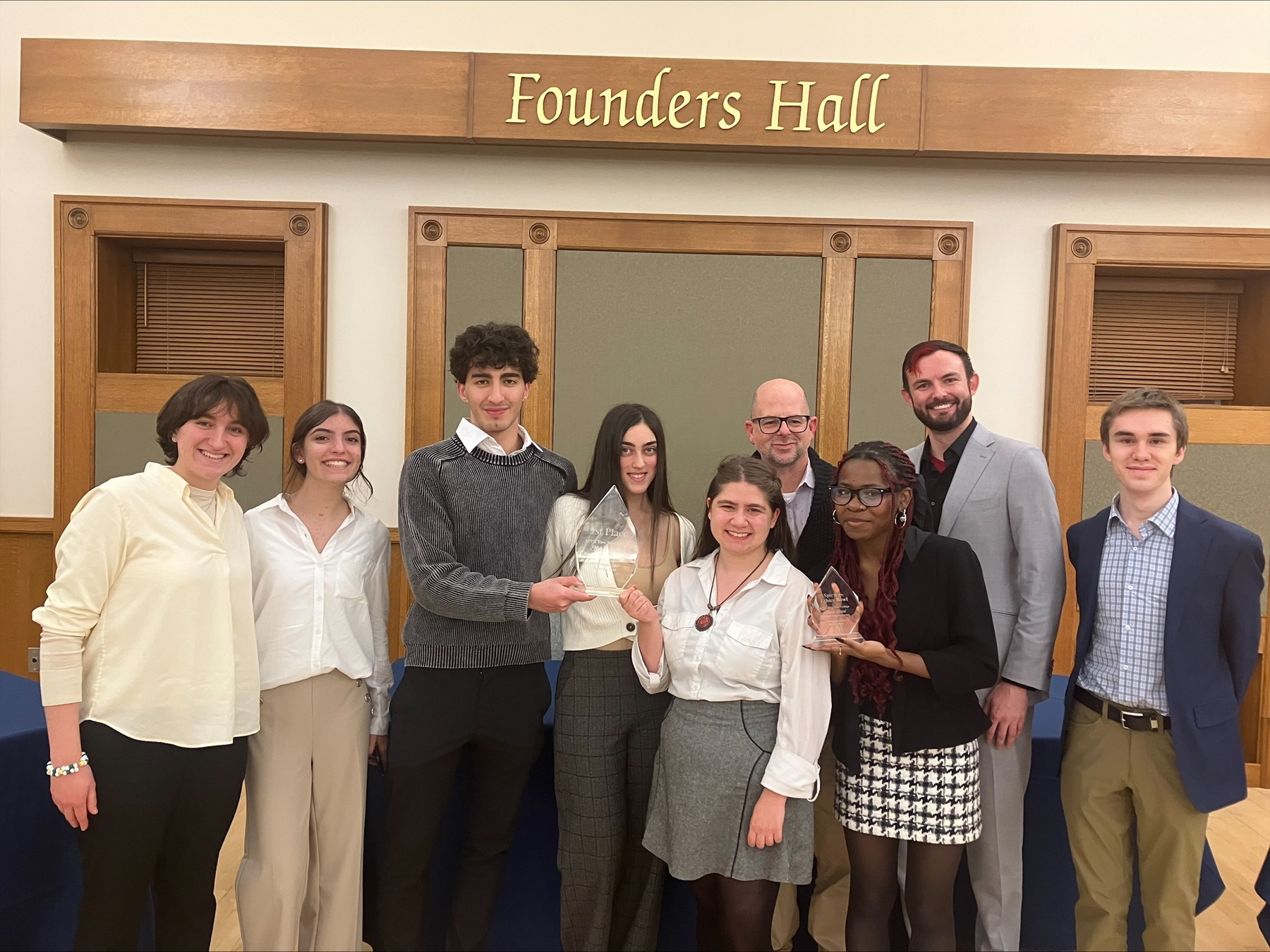Harper College will be closed on Wednesday, February 12 in observance of Lincoln's Day.


Harper College’s Ethics Bowl team is headed to the Association for Practical and Professional Ethics Intercollegiate Ethics Bowl for its fifth appearance at the prestigious national competition.
Harper will be among just two community colleges competing against four-year colleges and universities including Stanford, Duke and Loyola University Chicago. The competition, which takes place February 22-23 in Norfolk, Virginia, follows Harper’s first-place finish at the 2024 Two-Year College Championship, where Harper is a five-time winner.
In Norfolk, 36 teams will go head-to-head, presenting arguments on ethical questions drawn from education, business, life and politics. Teams will be judged on the quality of their arguments and ability to assess each case thoughtfully while displaying an appreciation for different perspectives.
Harper won the 2024 Two-Year College Championship for their argument on the question of who can use an individual’s DNA and for what purposes. Charles Kozel, a 31-year-old Arlington Heights native, returning student and Ethics Bowl team member, said the team carefully considered the possible uses of DNA and their impact.
“There's this concept of intellectual property associated with DNA that seems hard to reason about because, on one hand, it's not like you actually put work into designing your own DNA,” he said. “But there does seem to be a lot of personal information there, like your medical history, psychological biases and your ethnic heritage. All these things that may be private to an individual could be ascertained if someone had access to your DNA, which seems to be becoming increasingly easier to do.”
Harper’s Ethics Bowl team has dominated since 2012, earning several two-year college Ethics Bowl wins and national competition appearances. Harper Philosophy Professor and Ethics Bowl co-coach John Garcia spearheaded the school’s program. He is both a former Loyola University team coach and former Intercollegiate Ethics Bowl Chair and said all eight team members are strong contributors.
“We have a whole crew of really talented students, and it makes for a good experience preparing but also makes the team competitive,” he said.
The team practices by reading through the cases individually to identify key tensions and a position they would like to take, said Associate Philosophy Professor and Ethics Bowl co-coach Stephanie Adair. Then, they work through the different issues of the case in small groups followed by practice scrimmages.
“We give them a sample case question and let them practice coming up with a presentation on the spot,” she said. “We comment on it, and then we look out for ways of applying pressure to what they've said that will help them solidify their position, shore up weaknesses or even change it if they decide that's the best way to take that comment into account.”
Adair said the competition increases students’ skills and has helped them navigate complicated situations in their careers or understand or appreciate their courses.
“The activity itself involves a lot of critical thinking and honing your presentation skills, building confidence with public speaking and being able to just work through a complicated issue and appreciate the complexity of it,” she said. “It's interesting because we're not drilling ethical theory, but it's a lot of the practical application of ethical thinking.”
Michael Jordan, Intercollegiate Ethics Bowl chair, said the Ethics Bowl is important at the college level.
“It fosters critical thinking, civil discourse, and ethical reasoning – skills that I believe are essential for students’ academic, professional, and personal growth,” he said. “It challenges students to thoughtfully engage with complex moral issues, consider diverse perspectives, and articulate reasoned arguments in a respectful, collaborative environment.”
Garcia said the competition rewards deliberate thoughtfulness and the ability to see things from both sides.
“It's so easy and tempting to demonize people with whom you disagree, and this is sort of designed to combat that tendency and to teach thoughtfulness and to practice collegial conversation,” he said.